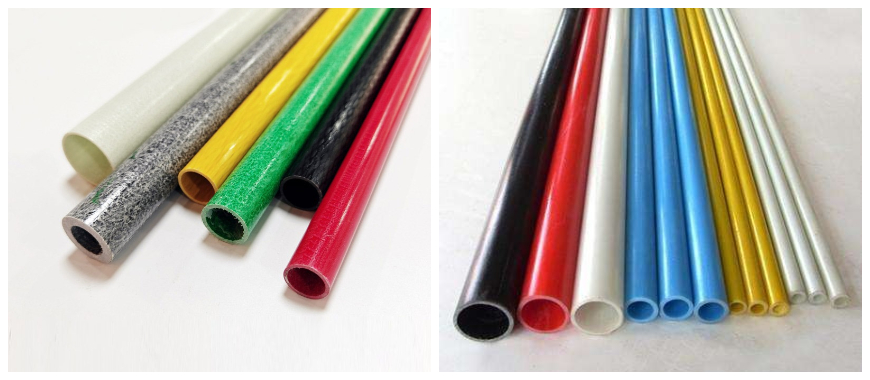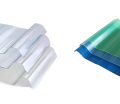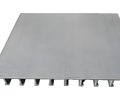
Large fiberglass tubes are essential components in numerous industries, offering unique advantages over traditional materials. Known for their lightweight yet strong nature, these tubes are used extensively in construction, transportation, and marine applications. Their corrosion resistance ensures durability, making them ideal for outdoor and industrial environments.Large fiberglass tubes can be manufactured in various sizes and shapes, accommodating diverse project requirements. The versatility of these tubes allows for innovative design solutions, enhancing both functionality and aesthetic appeal.
What Are Large Fiberglass Pipes?
Large fiberglass tubes are engineered products made from fiberglass materials. They are designed to meet the needs of various applications across different industries.
Key Features
One key feature of large fiberglass tubes is their impressive strength-to-weight ratio. This fiberglass tube property makes them ideal for many uses, including construction and transportation.
Transparency
These tubes are known for their transparency, which allows for easy visual inspection of contents. This quality is particularly valuable in industries like water treatment.
Non-Conductive Properties
Large fiberglass tubes possess non-conductive properties. This feature ensures safety in electrical applications, reducing the risk of accidents and improving reliability.
Durability
Their resistance to corrosion and chemicals significantly enhances their durability. This attribute increases their utility in harsh environments.
Versatility
Variations of large fiberglass pipe are available to cater to different project requirements. This versatility ensures that they can adapt to various applications effectively.
Why FRP Pipe Railing is Ideal for Outdoor Installations
Characteristics of Large Fiberglass Tubes
Rating: Safety and Performance Implications
The rating of large fiberglass tubes plays a significant role in determining their safety and performance. Ratings are typically based on factors like tensile strength, load-bearing capacity, and environmental resistance. These ratings help to establish the maximum stress the tube can endure without compromising its structural integrity. Similarly, fiberglass bondage tube ratings are important for applications that require reliable strength and durability, such as in heavy-duty cable management or other industrial uses.
For industries like construction and marine engineering, selecting tubes with the appropriate rating ensures they can handle heavy loads and external pressures. Using high-rated large fiberglass tubes minimizes the likelihood of failure, which could otherwise lead to operational downtime or hazardous situations. These ratings are critical in ensuring compliance with industry safety standards, making them indispensable for project planning and execution.
Stabilization: Enhancing Longevity and Durability
Especially in demanding environments, stabilization of large fiberglass tubes is essential for ensuring long-term reliability. Stabilization refers to the process of enhancing the tube’s resistance to deformation, temperature fluctuations, and chemical exposure. This characteristic is crucial for maintaining the tube’s shape and performance under continuous stress. Proper stabilization techniques, like adding UV-resistant coatings or utilizing advanced resin systems, help prevent the fiberglass from weakening or cracking over time. At the same time, innovations in small diameter fiberglass tubes production have further advanced stabilization methods, offering new materials and techniques that enhance performance in challenging environments. These innovations contribute to improved durability and resistance to wear, further ensuring that large fiberglass pipe systems maintain their structural integrity.
Stabilization directly impacts the durability of large fiberglass pipe systems, which are often used in environments where corrosion and other wear factors are present. Without proper stabilization, the tube’s lifespan would be significantly shortened, leading to higher maintenance costs and potential safety risks.
Key Advantages of Using Hollow Fiberglass Tube in Construction
Pricing of Large Fiberglass Tubes
Factors Influencing the Price of Large Fiberglass Tubes
Several factors determine the price of a large fiberglass tube, making the cost vary depending on specific project needs.
- Material quality is one of the primary considerations. Tubes made from higher-grade fiberglass resins and reinforced with advanced additives typically cost more due to their superior performance characteristics.
- Size is another crucial factor. Larger tubes or those with thick wall fiberglass tubes require more material, increasing their overall price. On the other hand, thin wall fiberglass tubes can provide a cost-effective solution by using less material while still meeting strength requirements for specific applications, making them ideal for lightweight and space-sensitive projects.
- Customization also plays a significant role in pricing. Tubes designed with specific features, such as added UV protection, fire resistance, or special dimensions, tend to be more expensive. The complexity of manufacturing processes and lead times can influence the final cost of large fiberglass tubes, especially in projects requiring specialized designs or shorter turnaround times.
Average Price Range for Large Fiberglass Tubes
The average price range for large fiberglass tube components varies depending on the factors mentioned above. Bulk orders may benefit from discounted pricing, reducing the cost per unit for large-scale projects. While fiberglass tube/component may initially appear more expensive compared to other materials, their long-term durability and low maintenance requirements often result in cost savings over time.
Applications of Large Diameter Fiberglass Tubes
Large fiberglass tubes are widely used for their versatility.
Their unique characteristics make them an ideal choice for both structural and functional applications, providing significant benefits over traditional materials like steel or aluminum. Large diameter fiberglass tubes are particularly useful in industries where strength, corrosion resistance, and durability are essential.
1.Typical Uses in Industries:One common application of large fiberglass tubes is in fluid power systems, where they are used to transport liquids, gases, and chemicals. Their corrosion resistance ensures they perform well in environments that would typically degrade other materials. In pressurized air-oil reservoirs, these tubes offer excellent resistance to internal pressure, preventing leaks and maintaining performance over time.
2.n the construction sector, large fiberglass tubes are used as structural supports, providing a lightweight alternative to metal that doesn’t compromise strength. The marine industry also benefits from large fiberglass tubes due to their ability to withstand harsh, corrosive environments while maintaining integrity.
3.These tubes are used in water treatment plants for piping systems, ensuring durability and preventing contamination. Large fiberglass tubes are increasingly used in telecommunications as protective conduits for wiring, where non-conductivity is crucial for safety.
How to Choose the Right Tapered Fiberglass Tube Size
Advantages Over Alternatives
Compared to materials like steel, aluminum, and PVC, large fiberglass tubes offer several advantages that make them a preferred choice for many applications.
| Feature | Large Fiberglass Tubes | Steel | Aluminum | PVC |
|---|---|---|---|---|
| Corrosion Resistance | High | Low | Medium | Medium |
| Impact Strength | Excellent | High | Medium | Low |
| Tensile Strength | High | Very High | High | Low |
| Weight | Lightweight | Heavy | Lightweight | Lightweight |
| Non-conductivity | Yes | No | No | Yes |
| Maintenance Costs | Low | High | Medium | Low |
As shown in the table, large fiberglass tubes offer superior impact and tensile strength compared to PVC and aluminum, while being more corrosion-resistant than steel. Their lightweight nature and non-conductive fiberglass properties make them safer and easier to install in various industrial settings.
The Benefits and Versatility of Large Fiberglass Tubes
Strength and Durability
Large fiberglass tubes offer a unique blend of high strength and lightweight composition. Their corrosion resistance makes them superior to materials like steel, aluminum, and PVC, ensuring long-lasting durability in various applications.
Non-Conductive Properties
The non-conductive nature of large fiberglass tubes provides an essential safety feature in high-voltage and electrical environments. This makes them ideal for telecommunications, fluid power systems, and other industrial uses.
Versatility Across Industries
These tubes are versatile, excelling in demanding environments such as pressurized air-oil reservoirs, marine applications, and protective conduits in construction. Their adaptability to different conditions highlights their utility in numerous sectors.
Reduced Maintenance Costs
The lightweight composition of large fiberglass tubes reduces installation challenges and minimizes maintenance needs over time, resulting in lower operational costs. Their durability ensures long-term performance and reliability.

As the editor of GangLong Fiberglass, I have years of experience and in-depth research, focusing on cable tray products, fiberglass solutions, and grille systems. I incorporate years of industry insights and practical experience into every content, committed to promoting the progress of the industry. At GangLong Fiberglass, my commitment is reflected in every product, from innovative cable trays to durable fiberglass solutions and sturdy grille systems. As an authoritative voice in the industry, my goal is to provide valuable information to professionals and businesses and promote forward-looking solutions.


